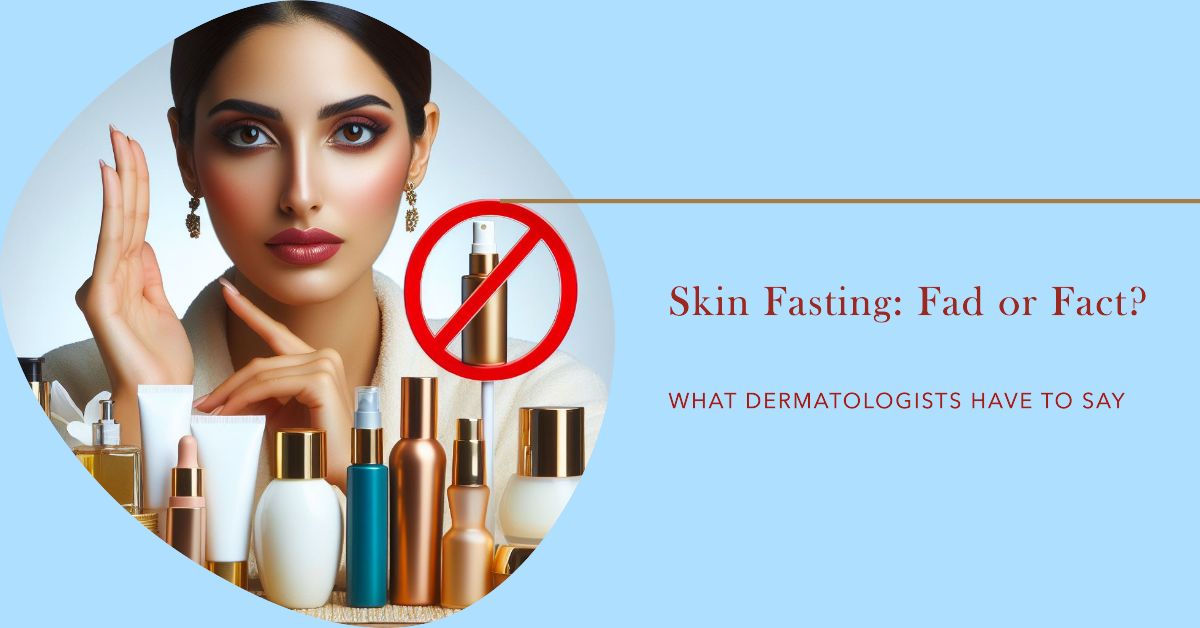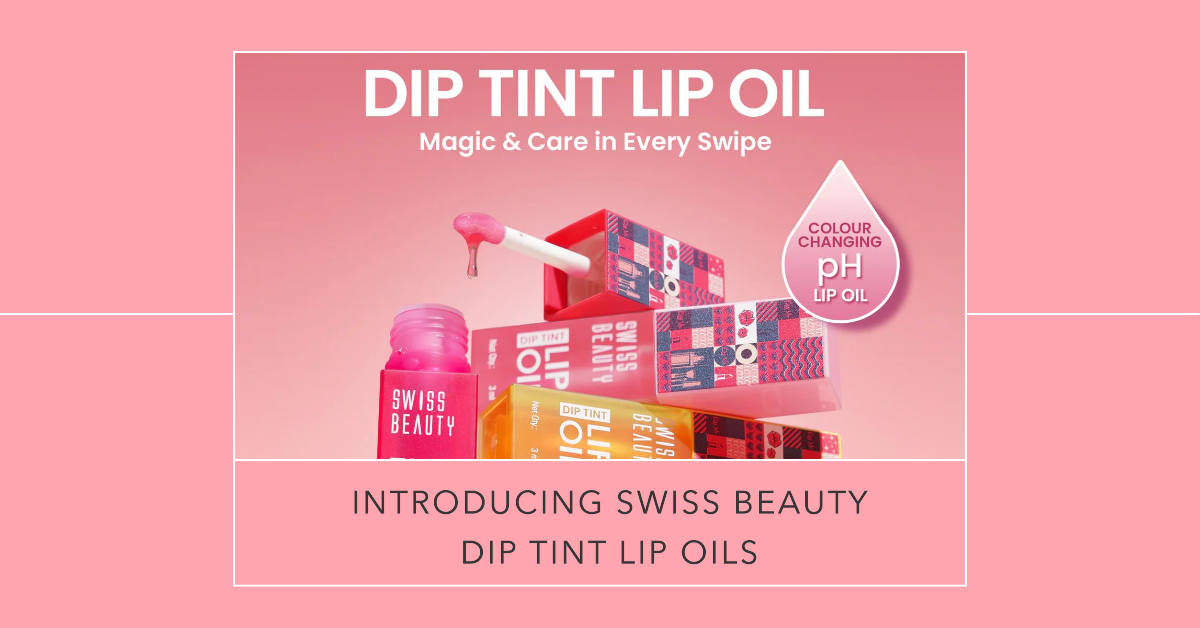Skin fasting, a term coined by skincare enthusiasts, is a trend that took the social media by storm. The practice involves taking a break from your entire skincare routine for a certain period. The idea is to allow your skin to “reset” and function more naturally. Proponents of skin-fasting argue that continuous exposure to skincare products may disrupt the skin’s natural functions and lead to dependency. By allowing the skin to “rest” from external influences, advocates believe that it can restore its inherent balance and vitality. However, dermatologists have varying opinions about the concept of skin fasting. While some acknowledge the potential benefits proposed by proponents of skin fasting, others express caution and scepticism regarding its efficacy and safety.
In This Article
The Promise of Skin Fasting
Proponents of skin fasting believe it offers several benefits:
1. Detoxification:
By removing products, the skin supposedly eliminates buildup and toxins. This theory suggests that without the interference of external products, the skin’s natural detoxification processes can work more efficiently.
2. Resetting Natural Oils:
Taking a break allows your skin to produce its own natural oils, potentially reducing reliance on moisturizers. Advocates argue that constant use of moisturizers may disrupt the skin’s ability to regulate its oil production effectively.
3. Improved Skin Health:
Some believe skin fasting can improve overall skin health by allowing your natural barrier to function better. The absence of external products may encourage the skin to strengthen its protective barrier and maintain optimal hydration levels.
The Argument for Skin-Fasting
Advocates of skin-fasting propose several potential benefits:
1. Restoring Natural Balance:
According to proponents, skin-fasting enables the skin to recalibrate and function optimally without external interventions. They argue that constant product usage may hinder the skin’s ability to regulate its moisture levels and oil production independently.
2. Identifying Underlying Issues:
By abstaining from skincare products, individuals may uncover underlying skin concerns that were previously masked or exacerbated by product usage. This allows for a more accurate assessment of the skin’s condition and the implementation of targeted solutions.
3. Reduced Sensitivity:
Some proponents suggest that skin-fasting can desensitize the skin, making it less reactive to external stimuli. They posit that prolonged exposure to skincare products, particularly those containing active ingredients, may sensitize the skin over time.
What the Experts Say
While the idea of a “skin reset” might sound appealing, dermatologists are cautious about complete skin fasting. Here’s why:
1. Limited Scientific Evidence:
Dermatologists emphasize the importance of evidence-based skincare practices. They highlight the lack of strong scientific backing for the supposed benefits of skin fasting. While the skin does have natural detoxification processes and sebum production is vital for skin health, there’s insufficient evidence to suggest that these functions are significantly “boosted” by abstaining from skincare products.
2. Potential for Damage:
Dermatologists caution against the potential risks associated with complete skin fasting. Skipping essential skincare steps such as cleansing can lead to clogged pores, accumulation of dirt and oil, and subsequent breakouts. Moreover, discontinuing the use of moisturizers can result in dryness and irritation, particularly for individuals with sensitive or dry skin. Dermatologists emphasize the importance of maintaining a balanced skincare routine to support the skin’s health and function.
3. Risk for Worsening Conditions:
Individuals with pre-existing skin conditions, such as eczema or acne, are at risk of experiencing exacerbations or flare-ups if they discontinue their prescribed treatments. Dermatologists stress the importance of consistency in managing these conditions and advise against abruptly stopping treatment without consulting a healthcare professional.
The Alternative: The Minimalist Approach
Dermatologists recommend a more balanced approach:
1. Simplify Your Routine:
Skincare is not one-size-fits-all. What works for one person may not be suitable for another. Dermatologists emphasizes personalized skincare routines based on an individual’s skin type, concerns, and lifestyle. Instead of complete abstinence, consider a minimalist routine. Use gentle cleansers and a basic moisturizer suitable for your skin type
2. Focus on Key Ingredients:
Dermatologists emphasizes evidence-based skincare. While skin fasting may have anecdotal benefits, scientific research supporting its efficacy is limited. She encourages people to rely on proven ingredients and treatments. Look for products with ingredients proven to benefit your skin concerns, like hyaluronic acid for hydration or retinoids for anti-aging.
3. Hydration:
Even during skin fasting, maintaining skin hydration is crucial. Drinking water and using a gentle moisturizer can help prevent dryness and maintain skin health.
4. Sun Protection:
Regardless of skin fasting, sun protection remains essential. Sunscreen shields the skin from harmful UV rays and prevents premature aging
5. Listen to Your Skin:
Pay attention to how your skin responds during skin fasting. If you notice excessive dryness, irritation, or other issues, adjust your approach accordingly.
More: Dr. Jaishree Sharad: The Dermatologist Extraordinaire Transforming Skincare, One Woman at a Time
Expert Insights: Perspectives from Dermatologists
To gain deeper insights into the practice of skin-fasting, we consulted dermatologists specializing in skincare. Their perspectives shed light on the efficacy and safety of this trend.
1. Dr. Ajay Rana
Dr. Ajay Rana suggests that skin fasting might be beneficial for individuals who follow elaborated skincare routines not advised by dermatologists. By limiting their skincare to 2-3 products, their skin can reset and refresh. Additionally, some people use multiple active ingredientssimultaneously, which can lead to irritation and inflammation. Removing such products during skin fasting could prevent these issues (1).
2. Dr. Rashmi Shetty
Dr. Rashmi Shetty, in an Instagram post, emphasizes that while the trend recommends stopping the use of all skincare products for 2-4 weeks, moisturizer should not be skipped. Hydration and moisture play a crucial role in maintaining healthy skin and aiding its healing process (2).
3. Dr. Annie Flora
DR. Annie Flora, a senior consultant dermatologist, highlights that fasting (such as during Ramadan) can positively impact skin health. It may improve skin elasticity, reduce acne, and enhance overall skin appearance (3).
4. Dr. Chiranjiv Chhabra
Dr. Chranjiv Chhabra, director and chief dermatologist at Alive Wellness Clinic, explains the concept of “skintermittent fasting”. During this fast, individuals streamline their skincare routine, retaining only essential products likecleanser, moisturizer, and sunscreen. The goal is to reset the skin and reduce breakouts by addressing their root causes (3).
Key Takeaway
Skin fasting might seem like a natural way to improve your complexion, but it could backfire. Instead, focus on creating a simple, effective skincare routine that nourishes your skin without overwhelming it. If you have any concerns about your skin health, it’s crucial to consult a dermatologist for personalized advice. Dermatologists are trained medical professionals specializing in diagnosing and treating various skin conditions. Whether you’re considering trying skin fasting or experiencing issues with your current skincare routine, a dermatologist can offer expert guidance tailored to your specific needs. They can assess your skin’s condition, provide recommendations for appropriate skincare products and treatments, and address any underlying issues or concerns. Consulting a dermatologist ensures that you receive accurate information and personalized care to maintain the health and vitality of your skin.











